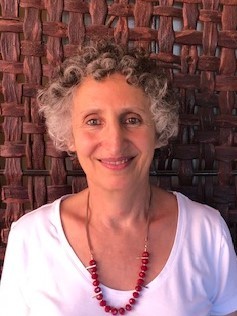25 March 2020
View Webinar Content
Presentation—Lea Ranalder: Renewables in Cities 2019 Global Status Report
Presentation—Peta Wolpe: Sub-Saharan African Cities: An Overview
The Clean Energy Solutions Center, in partnership with REN21, hosted this webinar on the status and emerging prospects for renewable energy in sub-Saharan African cities.
To make the change to renewables, cities need to be involved, as energy cuts across the entire urban environment. Cities are large energy consumers; their municipal governments are often operators and owners of municipal infrastructure and have a direct responsibility to provide a healthy and sustainable living environment.
Sub–Saharan Africa is one of the world’s most rapidly urbanizing regions. Current urbanization rates exceed the ability of many local governments to adapt, leading to inadequate infrastructure and large numbers of informal settlements, often called “slums”. Widespread poverty does nothing to help the situation.
A lack of core infrastructure in the region, however, offers a major opportunity to orientate the region’s growth along a more sustainable path. Local governments, with the use of renewable energy, can shape urban growth while simultaneously ensuring energy services are delivered to its populations. However, financial, political and governance problems prevent many cities from investing in local renewable energy, despite the clear benefits of increased access to clean, affordable energy, as well as improved air quality, energy security, and potential job opportunities.
Panelists in this webinar discuss the key findings of the recently launched Renewables in Cities Global Status Report (REC) and detail the challenges and opportunities for renewable energy in sub-Saharan African cities. Discussion points from the webinar will feed into the upcoming 2020 REC report, which will feature renewables in sub-Saharan African cities.
Panelists
Lea Ranalder, Project Manager and Analyst, REN21
 Lea Ranalder is a Project Manager and Analyst at REN21, the Renewable Energy Policy Network for the 21st Century, where she coordinate the Renewables in Cities Global Status Report. Previously at REN21, Lea worked on, and co-authored reports on the status of renewable energy in South and East Africa and Latin America; she also supported the International Renewable Energy Conferences in South Africa, Mexico and Korea. Additionally, she currently coordinates a network for Young Leaders in Energy and Sustainability (YES-Europe) to build a stronger pan-European energy community. Prior to REN21, Lea worked for the German Embassy in Panama and a Swedish environmental NGO where she initiated divestment campaigns and created a network of sustainable entrepreneurs. She holds a M.Sc. in Environmental Science from Lund University.
Lea Ranalder is a Project Manager and Analyst at REN21, the Renewable Energy Policy Network for the 21st Century, where she coordinate the Renewables in Cities Global Status Report. Previously at REN21, Lea worked on, and co-authored reports on the status of renewable energy in South and East Africa and Latin America; she also supported the International Renewable Energy Conferences in South Africa, Mexico and Korea. Additionally, she currently coordinates a network for Young Leaders in Energy and Sustainability (YES-Europe) to build a stronger pan-European energy community. Prior to REN21, Lea worked for the German Embassy in Panama and a Swedish environmental NGO where she initiated divestment campaigns and created a network of sustainable entrepreneurs. She holds a M.Sc. in Environmental Science from Lund University.
Peta Wolpe, Managing Director, SEA
 Peta has a degree in Sociology from the University of Essex and a Master of Science in Social Administration and Social Work Studies from the London School of Economics and Political Science. Peta worked in the field of psychiatric social work in the United Kingdom before returning to South Africa in 1996 to work in the development sector. Peta joined Sustainable Energy Africa (SEA) in March 2008. She provides overall management and leadership to the organisation and has worked on a range of climate change and energy projects. This has included research, facilitation, capacity building, data analysis and policy development within all three spheres of government. She has written papers, contributed to publications and given talks on sustainable energy and climate change.
Peta has a degree in Sociology from the University of Essex and a Master of Science in Social Administration and Social Work Studies from the London School of Economics and Political Science. Peta worked in the field of psychiatric social work in the United Kingdom before returning to South Africa in 1996 to work in the development sector. Peta joined Sustainable Energy Africa (SEA) in March 2008. She provides overall management and leadership to the organisation and has worked on a range of climate change and energy projects. This has included research, facilitation, capacity building, data analysis and policy development within all three spheres of government. She has written papers, contributed to publications and given talks on sustainable energy and climate change.
Sponsor Info
 REN21 is the only global community of renewable energy actors from science, academia, governments, NGOs and industry. It provides up-to-date facts, figures and peer reviewed analysis of global development in technology, policies and markets to decision-makers. Its goal: encourage and enable them to make the transition to renewable energy—now.
REN21 is the only global community of renewable energy actors from science, academia, governments, NGOs and industry. It provides up-to-date facts, figures and peer reviewed analysis of global development in technology, policies and markets to decision-makers. Its goal: encourage and enable them to make the transition to renewable energy—now.
